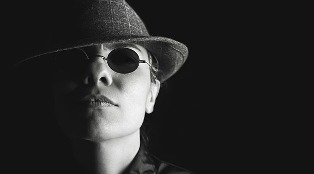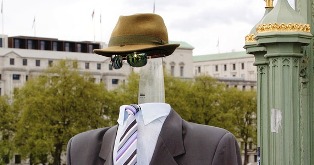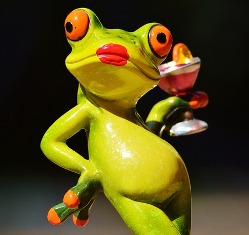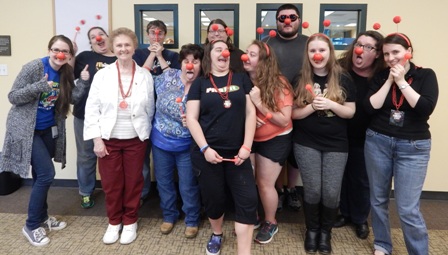Be a Hero at Villainy
BE A HERO AT VILLAINY
Lately I’ve been writing about characters, what makes them work and how to do them better. I’ve looked at the hero and anti-hero and we’ve examined how to write more depth and give our characters the real touch.
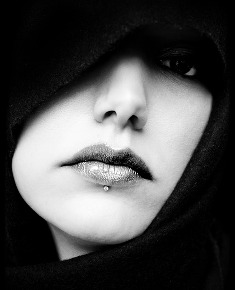
But what about the villains, the real antagonists, the truly bad guys (and gals)? (For our purposes here, I will refer to the bad guys as “he” or “they” and that is NOT meant to exclude the most terrific evil villainesses!).
What makes the reader love a villain? Is it the clothes? The style of your writing? The weapon he uses? Is it the POV or the struggle of his character? What’s the secret to a writing your best?

We writers are told to make characters relateable but how do we do that and make a villain seem true? Some suggest that it’s good to use shame or guilt to inspire turning to the “dark side.” Using the character’s foibles against him makes a good backstory but doesn’t endear the character per say. Their personal journey into darkness is interesting but that alone will not keep me with him.
It’s the STORY and the one issue that motivates and drives the story that makes me go with an author to the dark side. What I can relate to is a problem and how the bad guy intends to solve it. The hero and the villain will tackle the problem differently and independently (most likely) and I am going along with each because I NEED to know how it works out and who does the best job.
Yes, I want to feel their pain but I don’t want to know why the pain matters. I want to be where they are, when they are. Then I will have empathy or sympathy, or even delicious hatred (as the author molds me). Why the pain exists isn’t as important as what the villain intends to do about it.

I’ve written about making characters real by using dialogue that feels authentic. You do that in character mistakes. Yes, your villain’s limitations are interesting but so are their screw-ups and their obstacles. When they mess up, they are suddenly human, and we FEEL for them, even when we know they are the bad guy.
We cheer for a villain who won’t go down. We love to hate the clever, the sneaky, the witty, the nice ones who can also be very mean. Most of all, we love their stories because they mirror the struggles and mistakes of the protagonist. They share the same goals. Different purpose. Different reason. Same desire. Different use of it. Think of when a bad guy and a good guy have a bonding moment (or a m/f relationship). They may share the same outlook or same desire, but the reason for their want is what makes the story hum.
As American author Chuck Clousterman said, “The villain is the person who knows the most but who cares the least.”
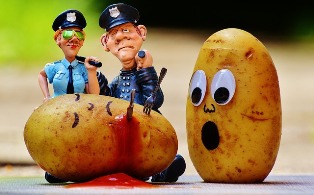
Remember that most coaches and teachers will tell you that the villain IS the story:
- A murder isn’t about death. It’s about the mystery of it, the whodunit and why the villain hid it.
- A theft isn’t about the stealing. It’s about the reason, the need to steal. Whodunnit certainly but how. We need to know why yes, but more important is what happens next because of the theft?
- Do we always need a happily ever after? No, because real life doesn’t work that way and villains can keep us coming back because we’ll HOPE to find it and we’ll be nodding our heads when it doesn’t happen.
We hear a great deal about the villains “moral dilemma” and this is the choice the villain made and why he must continue doing what he does or has planned. THIS is what separates the villain from the protagonist and why the villain is the most important character.
Most of all, I think most villains don’t see themselves as the “bad” guy. They are only doing what they think they are forced to do for personal, professional, or moral reasons. This is their whole reason for being.
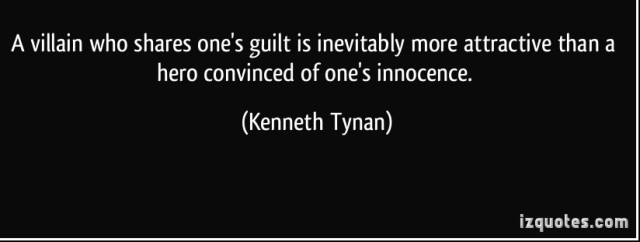
Villains then are the most necessary, the most dynamic, and the whole reason for the story.

Look for darkness around the corner. Turn out the lights and create the drama. Make the reader – and me – believe in the darkness and we will become your villains “frenemy,” fall in love when the lights go out and, though I hope the good guys win, I can be convinced to be content when they do not.
Villains forever! Make yours work and you will be a reader’s hero of villainy.
Thanks for stopping by.
I remain, Yours Between the Lines,
Sherry



















